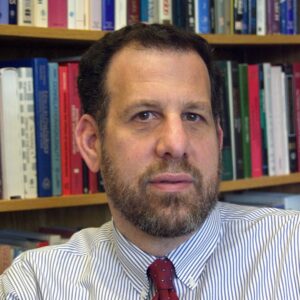This webinar is presented by Leonard Saxe, Ph.D.
Date: Thursday, October 16, 2025
Time: 5:00 pm PT / 6:00 pm MT / 7:00 pm CT / 8:00 p.m. ET
Webinar length is approx 60 mins, ZOOM link will be sent a few days before the event.
Antisemitism is not only a problem for members of the Jewish community, but the cudgel being used by the government to reshape higher education. We have a substantial data about the impact of antisemitism on Jewish students, but we need to turn our attention to understanding the sources and causes. This presentation is drawn from a program of research on campus antisemitism in the U.S. that pre-dates the horrific events of October 7th , 2023. It is framed by my social psychological understanding of individual and group dynamics and animated by my goal to apply social theory and methods to understanding the current eruption of antisemitism that provides policy makers with an evidentiary base to arrest the problem.
As an applied social psychologist, the nature of the problem rather than theory drives my research. The presentation will draw on a series of studies undertaking in the last two years that have tried to understand how Jewish and non-Jewish students, as well as faculty think about Jews and Israel. The program of research has involved understanding the role of social attitudes and ideology among students; and, similarly in the case of faculty, how their political attitudes are reflected in their teaching and engagement with students. One of the striking findings is how a relatively small group of individuals – of students as well as faculty — express hostility either to Jews or Israel but have garnered most of the intention. That a minority has the potential to change the overall environment is not surprising and it does not diminish the seriousness of the campus antisemitism problem. What it suggests, however, is that we need different strategies to dealing with antisemitism than those that are being currently employed.
Learning Objectives.
- Understand the need for psychologically informed research that moves discourse about campus antisemitism from documenting the impact of antisemitism to developing strategy to address the problem.
- Enable participants to understand the pattern of social attitudes and ideology of Jewish and non-Jewish students, as well as faculty, and relate to hostility/antisemitism.
- Drawing from recent research, provide participants with program and policy ideas that will more effectively respond to antisemitism and other forms of prejudice/discrimination.

Leonard Saxe is the Klutznick Professor of Contemporary Jewish Studies and social policy at Brandeis University where, for more than two decades, he directed the Cohen Center for Modern Jewish Studies and Steinhardt Social Research Institute. He is a social psychologist, and prior to his studies of Jewish life, did policy-relevant analyses of mental health and substance abuse, along with the use of polygraph tests. His recent work focuses on antisemitism, demography of Jewish communities, engagement with Israel, and relationships across ethno-religious groups. He is the author/co-author of 400+ publications, including books about Birthright Israel and the Jewish summer camping. He has been a Congressional Science Fellow and a Fulbright Professor at the University of Haifa. He received the American Psychological Association’s award for Distinguished Contributions to Psychology in the Public Interest (early career) and the Association for the Scientific Study of Jewry’s Sklare Award for his contributions to the understanding of Jewish life.
Addressing the Crisis of Antisemitism on College Campuses
"*" indicates required fields



